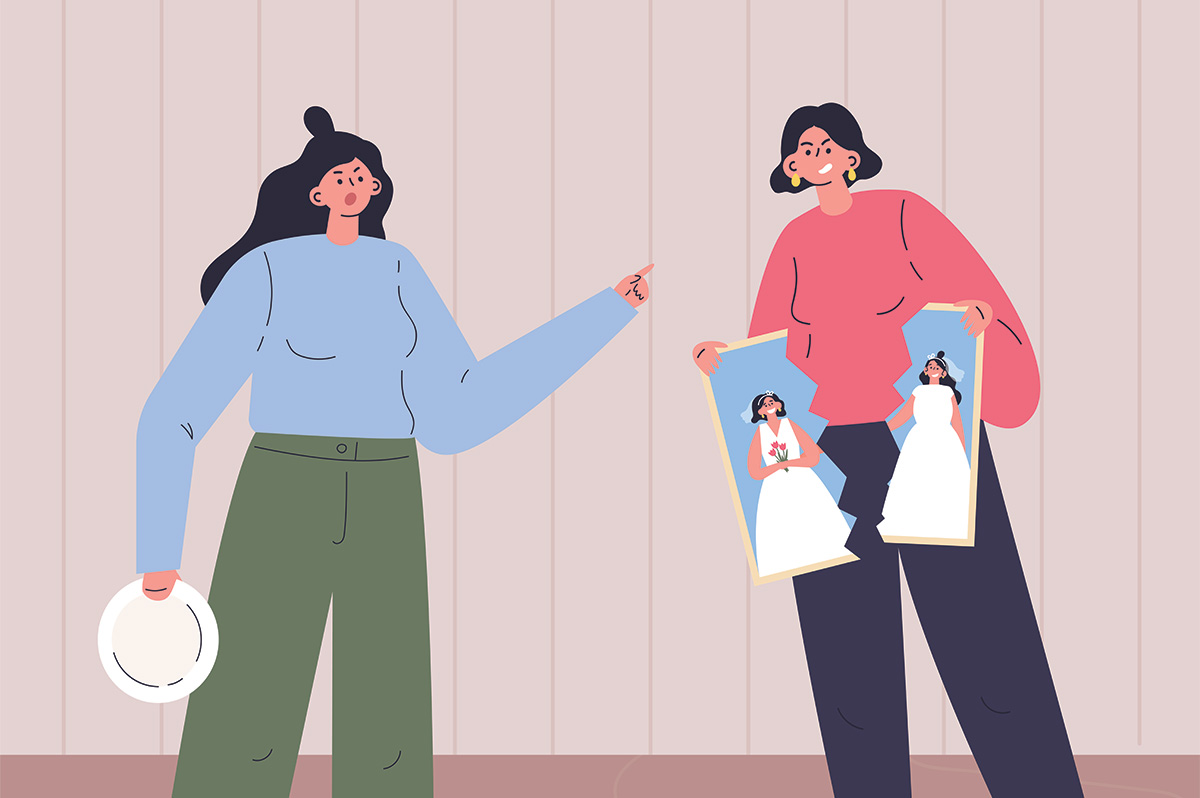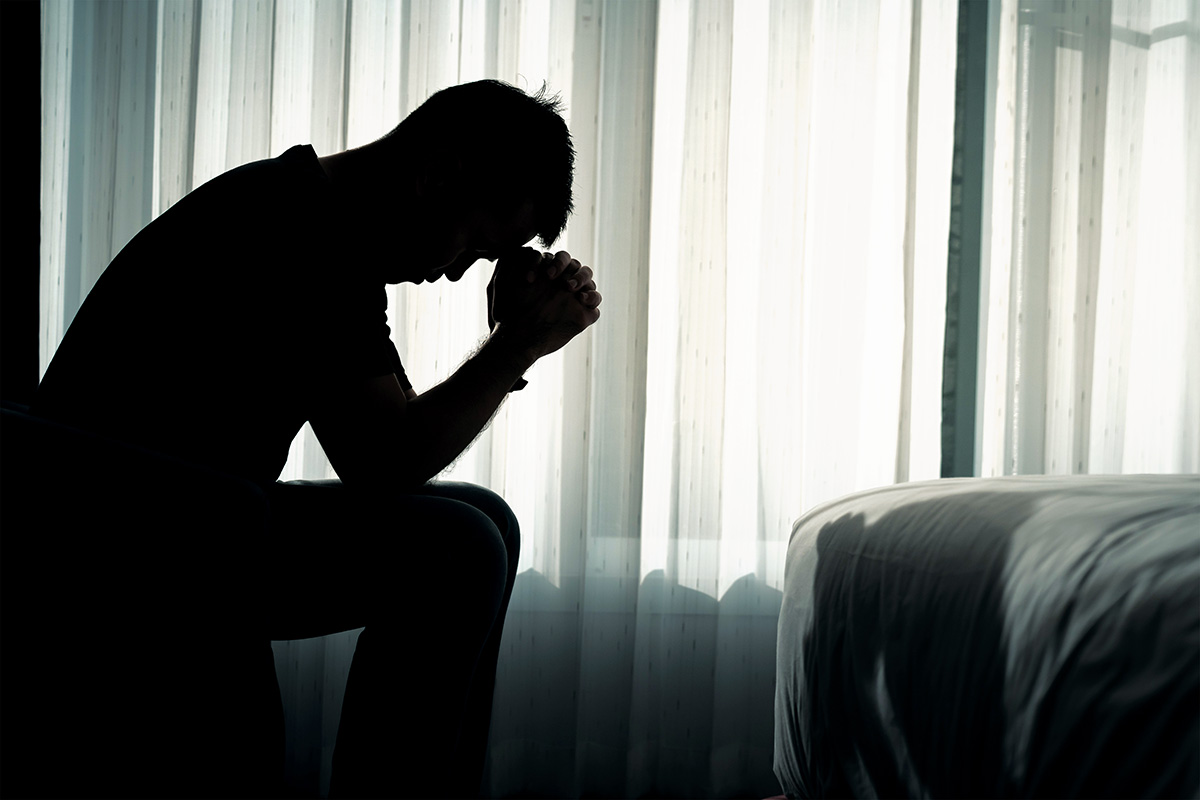Advice
Marriage in Md. — celebration and legal realities
What the law means for couples, kids and more

By SUSAN SILBER & SUSAN FRANCIS
Hearing about the first couples being issued their marriage licenses, receiving the happy news of friends planning to get married, contemplating our own futures and seeing couples finally able to marry on Jan. 1, we, as the rest of our community and allies, are nearly left speechless by the historical magnitude of what is happening in our state.
We share the joy, happiness and relief of knowing that our families will be recognized and treated with more protections than at any time in our history. However, because of the Defense of Marriage Act (DOMA), even if you do choose to marry, your relationship will be left unprotected by more than 1,000 federal laws enjoyed by straight married couples.
Can we marry? The patchwork of relationship recognition for our families has evolved quickly in the last 10 or so years. If you were legally married in another state or country, then you are legally married in Maryland and you cannot marry again. If you have a civil union or registered domestic partnership (including an affidavit of domestic partnership in Maryland), then you can marry as long as it is to the same person. Marrying will carry the additional state legal recognition and benefits.
If you have a civil union or domestic partnership, and you want to marry someone else, you need to legally dissolve your previous status. If you live outside Maryland, you can marry without any residency requirement, but if you live in a non-recognition state not only will your marriage not be recognized when you return home, if you ever need to end your marriage you may have a problem getting divorced since your home state won’t recognize your marriage even to end it, and Maryland has a one-year residency requirement for divorce.
What does marriage mean for parenting? Regardless of your marital status, you must do a second-parent adoption. It’s the only way to ensure that your parental relationship to your child, as the non-biological parent, is recognized and honored by all states. An adoption order from a court must be recognized by other states. Two lesbian moms who are married can be named on the baby’s birth certificate, but being named on the birth certificate does not establish parentage if you move to a non-recognition state.
Anytime you leave Maryland, you may be placing the relationship with your child in jeopardy, because a state that doesn’t recognize your marriage does not have to recognize all of the things that flow from it, including your status as a second parent based solely upon your marriage. Two dads cannot be named on a birth certificate, and also need to go through the adoption process. Once the adoption has occurred, DOMA does not apply to the parent-child relationship, and the child is eligible to receive federal benefits that flow from the second parent (e.g., social security benefits).
What else can we do to protect ourselves? Regardless of whether you choose to marry, you should do your estate planning. As we know, our families still encounter hostility from our families, hospitals, funeral homes, among others, and it’s important to make sure we’ve taken the legal steps to ensure our wishes are honored. In addition, you might want to consider re-titling your property to tenancy by entirities. It’s a status only available to married couples and prevents creditors of one of the parties from trying to secure an interest in your home. Up until now, same-sex couples have not had that option.
It also might be appropriate for you and your partner to create a prenuptial agreement in order to navigate potential issues including property, allocation of other resources and committing to pursue a non-adversarial method (like mediation or the collaborative process) if you need to end your relationship in the future. Because recognition of the length of our relationships (there may be a significant difference between how long we’ve been in a committed relationship and how long that relationship has been recognized by the state), or the way we view our family which may be much broader than what the court would consider our legal family, the best way to protect ourselves and our families may be to create a prenuptial agreement.
The agreement can clarify issues and resources most important to our families, instead of letting a court make those decisions for us. We can decide how to best allocate resources and property, whether alimony should be considered, and we can have those conversations when we’re best able to have them without conflict. It’s an opportunity to have the benefits of marriage and also customize our responsibilities to our families and make our own decisions. If you’re already married, you also may want to consider a post-nuptial agreement, which would provide the same benefits of determining the best outcomes for your family.
What is DOMA’s impact? As mentioned in our Nov. 30 Blade article, because of DOMA, there are definite drawbacks for some couples choosing to marry. It’s important to think through how your future might be negatively impacted by choosing to marry and recognize the benefits that won’t be available until DOMA is repealed. There are a number of benefits that same-sex married couples won’t have access to including Social Security spousal or survivor benefits, veteran benefits, federal health insurance, some retirement benefits and death benefits. It also impacts issues like health insurance coverage and a multitude of taxes. The U.S. Supreme Court has decided to hear the Windsor case challenging the federal definition of spouse under DOMA as a man and a woman. A decision is expected in June 2013. This will be a time for re-evaluation.
As we rejoice in this most significant step toward equality in our state, we encourage you to contemplate the impact that choosing to marry might have on you, your partner and your family. For many couples, it is a good idea to speak to a lawyer first to make sure you are fully informed of all the legal implications while making this important life decision.
Susan Silber and Susan Francis are attorneys at Silber, Perlman, Sigman & Tilev, P.A. and practice in Maryland and D.C. Reach them at [email protected] and [email protected].
Advice
How to cope when a partner gives you the silent treatment
Punishing behavior brings up memories of parent’s mistreatment

Michael,
My wife and I met less than two years ago and we were crazy about each other from the start. We wanted to spend life together so we just went for it. Maybe this wasn’t the most well-thought out decision on either of our parts but we thought that love conquers all.
But lately we’ve been arguing. The stuff we’re fighting about is never such a big deal: chores, or spending, or wanting to do different things on the weekend. But when I don’t want to go along with Michelle’s point of view, she gets angry and shuts down. Sometimes she stops talking to me for as long as a few days.
This is painful for me. My mom used to pull this stunt when I was a kid and she was mad at me. She also cut me off when I came out. We’re still estranged.
Michelle has a whole different take on this. She says I am being “mean” to her (when I don’t go along with what she wants) and this is painful, and she has to “take a break” to cool off.
I know she comes from a volatile family. She has told me there was a lot of screaming in her house, and she barely has a relationship with her parents as a result. So I get that she’s sensitive to conflict.
But I don’t think I’m being mean to her by standing up for what I want — certainly not enough to warrant her giving me the silent treatment.
We got married to have a great life together. We often do but I can’t live with someone who just shuts me out when she’s annoyed with me.
If I became a doormat and went along with everything she wants and never pushed back or complained, maybe she wouldn’t shut down. But I don’t want to do that.
I’d appreciate some ideas to improve the situation. I don’t want a divorce but I also don’t want to keep being mistreated.
Michael replies:
You can think of marriage — or any serious relationship — as a gym where you have ongoing opportunities to become an increasingly resilient person in the face of the ongoing challenges that an intimate relationship poses.
Your task here is to shift your focus toward figuring out how to handle yourself well, even in the awful circumstance of getting the silent treatment.
Michelle is not under an obligation to behave as you’d like her to. You can certainly ask her to stop withdrawing when she’s angry at you. But that doesn’t mean she is going to honor your request.
I well understand that Michelle’s punishing behavior is bringing up painful memories of your mother’s mistreatment. But if she doesn’t change her behavior, you have to find a way to live with Michelle as she is, with as much equanimity as you can muster, for as long as you choose to be married to her. If she does not change and you find her behavior to be unbearable, you can leave.
Every time she shuts down, Michelle is handing you an opportunity to figure out how you, yourself, can deal with feeling hurt and let down, rather than depending on someone else to behave as you’d like her to, or not upset you, or soothe you. Being in charge of your own mood rather than letting someone else press your buttons is a great skill to get better at.
I’m not going focus on what techniques you might use to soothe yourself — that’s a different column (or even better, a number of therapy sessions). That said, knowing that Michelle’s behavior comes from her history might help you to take it less personally. And, simply keeping in mind that living with a difficult spouse is unavoidable and worth getting better at may help you to quiet yourself down.
Another challenge that your marriage is pushing you to work on: Discerning when you can be generous, and when it is important to have a boundary. Of course, I understand that you don’t want to be a doormat by going along with whatever Michelle says and wants. But is it possible that she has a point, in that you could stand to lean more in her direction?
None of us get to have everything the way we want when we are in a relationship (much less in life). Figuring out the interplay between generosity and boundary is complicated. It often involves considering what is important to your partner; and deriving joy from her getting some of what is important to her, not only from your getting what you would like. And of course, it also involves figuring out what is most important to you.
If you set a boundary thoughtfully, because something is important to you, and Michelle doesn’t like it, you’re being handed an opportunity to get better at tolerating disappointment. Being a disappointment to your partner, and being disappointed in your partner, are both unavoidable parts of marriage: We’re all different, and at times will make choices that the other person really does not like.
If we make our decisions from a place of integrity rather than whim, entitlement, anger, or “whose turn it is”, and strive to honor the choices that our partners make from a place of integrity, this often makes the disappointment easier to bear.
Of course, it would be great if Michelle would join you in working to become a more solid and resilient spouse. As I mentioned earlier, you can’t persuade her to do so. But you can certainly tell Michelle what you are working on and ask her to consider how she, too, might use your relationship difficulties as a challenge to grow.
It isn’t easy to have such a conversation without sounding condescending. You are better positioned to do so when you are walking the walk, not just talking the talk. One good rule of thumb is to put you and your partner in the same boat, making it clear that you see the two of you as facing the same challenges, rather than positioning yourself in a superior position. Another is to initiate the conversation when you are both calm, rather than in the middle of a fight or when you’re getting the silent treatment.
One more point: If Michelle is willing, I’d suggest that you propose couples therapy as an opportunity for you two to collaborate on building a consistently loving relationship where neither of you lets your reactivity run the show.
Michael Radkowsky, Psy.D. is a licensed psychologist who works with couples and individuals in D.C. He can be found online at michaelradkowsky.com. All identifying information has been changed for reasons of confidentiality. Have a question? Send it to [email protected].
Advice
My federal worker husband is depressed and I don’t know how to help
I feel like he’s dragging me into his hopelessness

Dear Michael,
My husband is a federal worker. Many of his colleagues took “the fork” or have been fired. So work has been overwhelming. He usually works late. The morale in his office is terrible. His paycheck disappeared with the shutdown although due to the specifics of his job, he still had to go in. He’s gotten increasingly depressed, irritable, and short-tempered.
I met Jason 20 years ago when we were young, and one of the things that made me fall in love with him was his idealism. He came to Washington because he wanted to contribute to the well-being of our country.
When I look at him now, it’s like he’s been through the wringer. He’s lost his idealism, feels unappreciated by our country, and is becoming bitter.
He never wants to go out with friends. Either he doesn’t want to hear them complain about the same sorts of things he’s experiencing, or he doesn’t want to have to interact with people who are doing just fine, job-wise.
He also doesn’t feel like going out, just the two of us. So we’re home a lot. But we’re not spending time together when we’re at home. He’s surfing the internet, doom-scrolling, or playing video games.
I can’t get him to talk to me; he says, “I don’t want to talk about anything, it just makes me feel worse.” I can’t get him to do anything that might help him feel better. He doesn’t want to cook dinner with me, he doesn’t want to eat any of his favorite foods that I make for him, he won’t go for a walk with our dog (exercise is supposed to help mood, right?).
I’m really worried about him. Clearly, he’s depressed, and nothing I am trying is helping him to feel better.
But in addition, I am starting to get annoyed. How much more can I try to do things for him that he doesn’t respond to and doesn’t appreciate?
I’ve been OK through this long slog, so far, but now I feel like I am being sucked into his depression and hopelessness. I’m starting to feel like giving up. I’m lonely and I miss my husband and I am despairing that he’s ever really going to come back.
In short, now I hate my life, too.
I’m not going anywhere but I am worried that my main feeling toward him is starting to be apathy. Is there something I can do to help him that I haven’t thought of?
Michael replies:
I’m sorry, this is such a rough time.
It’s understandable that when someone you love is suffering and feeling miserable, you might at times get fed up and feel like pulling away.
There’s a great saying by an ancient Jewish sage, Rabbi Tarfon: While you can’t fix the whole world, that doesn’t mean you should give up and do nothing to help.
I thought of that saying as I read your letter, because while you can’t get Jason to change his mood or take action on his own behalf, you may have some ability to help him.
Similarly, while you can’t have a fantastic time in life when your husband is in a miserable place, you can take care of yourself and likely have a better life than you are having at present.
For starters, I encourage you to keep reminding yourself that this is without doubt one of the hardest periods of your husband’s life. So it’s a very good idea to have an open heart and a lot of compassion for Jason, as much of the time as you can. This won’t be easy. Strive to keep in mind that getting angry at Jason or frustrated with him won’t help.
Don’t try to insist that Jason do anything. Often, when we push someone to do something that they don’t want to do, this just results in their digging in more. People generally don’t like to be nagged.
Of course you can ask Jason if he’d like to join you for a walk, or an outing, but tread carefully. You can advocate for what you’d like, but Jason gets to decide what he wants to do.
You can certainly ask Jason what he would like from you, especially when he’s complaining. I love the “3 H’s” concept: Would he like you to hear (simply listen)? Would he like help (advice on what to do)? Or would he just like a hug?
The best message you can send to Jason, by your presence and by an ongoing loving stance, is “I am here. You’re not alone.” Even when he wants to stay in the basement playing video games. You’re not criticizing him and you’re not judging him. Maybe you’re baking some cookies you both like and leaving him a plateful to eat if and when he wants to. (Be sure to treat yourself to some, as well.)
In terms of bigger interventions, you can suggest that Jason meet with a therapist, or meet with his physician to discuss the possibility of an antidepressant to help him through this awful period. For example, you might have a sincere conversation where you say something like this:
“I’m worried about you. I really want to encourage you to get some help. My love for you can only go so far, and while I’m not going anywhere, I’d like you to take seriously how miserable you are. I’m here to encourage you that maybe you could feel better, even though your circumstances are terrible and you feel disillusioned.”
Again, trying to convince or force Jason to take action will likely go nowhere useful.
Now let’s focus on you. Living with a depressed spouse can be a miserable, soul-crushing experience. As you described, you’re watching the person you love suffer, and you’re pretty much losing your partner in so many of the things that make life enjoyable.
Part of getting through this is to acknowledge that there is a limit to what you can do for Jason. And part of it is to strengthen your commitment to self-care. Taking care of yourself may keep you from going too far into misery or resentment. He doesn’t want to get together with a friend? Consider going anyway, and do your best to have at least a good time. Same thing with a dog walk, a good meal, or sitting down to watch a movie you’d like to see. You might also consider meeting with a therapist for ongoing support and strategizing.
While this period of your life is gruelingly difficult, try to remember that it likely will come to an end, that there will likely be good times ahead for you and for Jason, and that in the meantime, doing your best to find ways to take care of yourself while also being a supportive and loving spouse will help you to survive.
Michael Radkowsky, Psy.D. is a licensed psychologist who works with couples and individuals in D.C. He can be found online at michaelradkowsky.com. All identifying information has been changed for reasons of confidentiality. Have a question? Send it to [email protected].
Advice
Sexual desire is waning, should we open our relationship?
Couple faces difficult choices after seven years

Dear Michael,
When I met my husband seven years ago, I was super attracted to him and we had a really hot sex life.
That feeling has been waning for a while and now I am just not feeling it.
I know that people get older, gain weight, get less attractive over time but that’s not the case here. Ben is as good looking as ever. But I have little desire to have sex with him.
It bothers me that I don’t really want to have sex with the guy I love and want to spend the rest of my life with.
Is this why everyone else I know has an open relationship? Is there something I can do to want to have sex with my husband again?
This is causing major problems in my marriage. I don’t initiate anymore and half the time I find an excuse to not have sex when Ben initiates. He knows something is up but I usually blame it on work stress or not feeling well. I don’t want to hurt his feelings.
Aside from this, I love Ben and we have a lot of fun together. We’re very close, talk about all sorts of stuff, but not this.
Michael replies:
Pretty much everyone in a long-term relationship has to deal with decreased desire at some point.
Sex changes after you’ve been with your partner for a while. Sex is not going to be as easy, hot, and irresistible as it was at the beginning of the relationship. Newness generates a lot of the sexual heat at the outset of a relationship, and when the newness is gone, you don’t easily feel the same sizzling excitement that you felt when you first met.
Unfortunately, the kind of sex that people have at the beginning of a relationship is totally glorified in our culture as the gold standard of sex.
I say “unfortunately” because it’s not possible to consistently have the hot sex of a new relationship, ongoing, with a long-term partner. So if you think that is the best or only kind of sex to have, you will be contemptuous of anything else, and you will be disappointed in your sex life with your partner as time marches on.
But the sizzling sex people have at the start of a relationship is just one way to have sex. If you are willing to be imaginative, and are open to change, there are many other kinds of sex that can be wonderful.
How about sex for emotional connection? Sex for physical closeness? Sex for romance? Sex to celebrate just being together?
So, consider changing (not lowering!) your expectations. Rather than sulking or moping that you don’t want to spontaneously jump Ben’s bones, be open to having sex with your husband that is based more on your relationship and on your love for each other.
Now, here’s a whole other angle to consider: While the excitement of a new partner often fades, there are still ways to generate excitement and passion in a long-term relationship by taking risks and revealing yourself more deeply. Stick with me and I’ll explain.
- You haven’t said anything to Ben about your waning interest. I encourage you to re-think this. You would be much better positioned to tackle this issue collaboratively. Not talking about how stuck you feel is likely to deepen your feeling of shame and fear that something is wrong. Speaking with Ben about what is actually a fairly common couples’ issue could be a relief.
- Ironic as this may seem, the closer two people are, the less comfortable they may be being frankly sexual with each other. Clients often tell me that they are more comfortable expressing their real desires to someone they hardly know (or don’t know at all) than to their significant other. For one thing, the more your partner means to you, the more you may fear rejection if you reveal sexual feelings and desires that might upset or even shock your partner. For another, as couples get closer, sex may start to feel like too much closeness, and avoiding sex may be a way to create some space.
Not speaking up about what is important keeps you distant from your partner and drains your relationship of vitality. A powerful antidote to this: work toward becoming a person who can take risks, tolerate discomfort and uncertainty, and be able stand on your own when you don’t get your partner’s validation.
Talking with Ben, whether it’s about your lack of spontaneous desire for sex, or about sexual interests you may be keeping from him for fear of judgment, would involve your making uncomfortable moves that might lead to Ben’s judgment or even rejection. But doing so would also, of course, allow the possibility of more happening between you sexually. It would also let Ben know you better, thereby deepening the level of intimacy in your relationship. Making these moves could also be inherently exciting, which —guess what—could help to shake you out of your sexual doldrums and bring more passion and life into your relationship.
Similarly, you might start initiating. Even if you’re afraid it won’t go well and even if you’re not feeling it. That is the only way you are going to figure out how to have satisfying long-term sex. Take the need for an erection or orgasm off the table. Sex with your partner should not be a performance. Go for closeness, connection, and what feels good. And challenge yourself to go places that you are uncomfortable about going.
If any of this intrigues you, “Passionate Marriage” and “Intimacy and Desire,” both by David Schnarch, explore how your sexual connection can deepen over time in a long-term relationship.
Finally, with regard to your considering an open relationship as a remedy: Do you think that would enhance the sexual connection between you and Ben?
Michael Radkowsky, Psy.D. is a licensed psychologist who works with couples and individuals in D.C. He can be found online at michaelradkowsky.com. All identifying information has been changed for reasons of confidentiality. Have a question? Send it to [email protected].
-

 Photos4 days ago
Photos4 days agoThe year in photos
-

 Sponsored3 days ago
Sponsored3 days agoSafer Ways to Pay for Online Performances and Queer Events
-

 District of Columbia2 days ago
District of Columbia2 days agoTwo pioneering gay journalists to speak at Thursday event
-

 a&e features2 days ago
a&e features2 days agoQueer highlights of the 2026 Critics Choice Awards: Aunt Gladys, that ‘Heated Rivalry’ shoutout and more




















